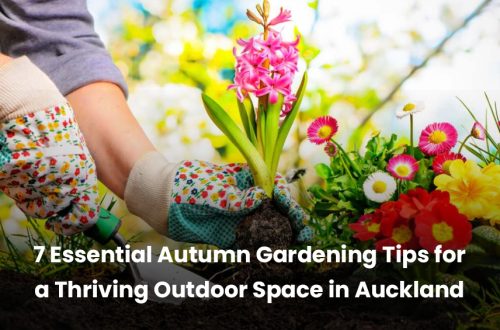Getting Started with P. Allen Smith’s Gardening Philosophy
P. Allen Smith, a renowned gardening expert, emphasizes a holistic approach to gardening; It’s not just about planting seeds; it’s about creating a sustainable and beautiful ecosystem. His philosophy centers around understanding your local environment, choosing the right plants, and nurturing the soil. This approach ensures a thriving garden that brings joy for years to come. He believes that gardening should be accessible to everyone, regardless of experience level.
Soil Preparation: The Foundation of a Healthy Garden
Healthy soil is the cornerstone of any successful garden. Before planting, it’s crucial to assess your soil’s composition and amend it accordingly. P. Allen Smith often recommends conducting a soil test to determine its pH level and nutrient content. This will help you identify any deficiencies and choose the appropriate amendments.
- Amend with Compost: Compost adds organic matter, improves drainage, and provides essential nutrients.
- Consider Cover Crops: Planting cover crops like clover or rye can improve soil structure and suppress weeds.
- Avoid Over-Tilling: Excessive tilling can disrupt the soil’s natural structure and harm beneficial microorganisms.
Plant Selection: Choosing the Right Plants for Your Region
Selecting plants that are well-suited to your local climate and soil conditions is essential for a thriving garden. P. Allen Smith emphasizes the importance of choosing native plants whenever possible. Native plants are adapted to the local environment and require less maintenance. Consider your region’s hardiness zone when selecting plants. This will ensure that they can withstand the winter temperatures.
Furthermore, think about the amount of sunlight your garden receives. Some plants thrive in full sun, while others prefer partial shade. Choose plants that are appropriate for the amount of sunlight your garden receives.
Watering and Maintenance: Keeping Your Garden Thriving
Proper watering is crucial for plant health. Water deeply and less frequently, rather than shallowly and often. This encourages deep root growth, which makes plants more drought-tolerant. Mulching around plants helps to retain moisture and suppress weeds. Regular weeding is also essential for preventing weeds from competing with your plants for resources.
Pruning is another important aspect of garden maintenance. Prune plants to remove dead or diseased branches and to encourage new growth. Deadheading spent flowers can also prolong the blooming period.
Pest and Disease Control: Protecting Your Plants
Pest and disease problems can be frustrating for gardeners. P. Allen Smith recommends using integrated pest management (IPM) techniques to minimize the use of harmful chemicals. IPM involves identifying pests and diseases early, using natural predators and beneficial insects, and applying pesticides only as a last resort.
Regularly inspect your plants for signs of pests or diseases. Early detection is key to preventing problems from spreading. Consider using organic pesticides, such as neem oil or insecticidal soap, to control pests.
FAQ: Frequently Asked Questions About P. Allen Smith Gardening Tips
What is the best time to start a garden?
The best time to start a garden depends on your region and the types of plants you want to grow. Generally, spring and fall are good times to start a garden.
How often should I water my plants?
Watering frequency depends on the weather, soil type, and plant species. Check the soil moisture regularly and water when the top inch feels dry.
What is the best way to control weeds?
Mulching, hand-pulling, and using herbicides are all effective ways to control weeds. Choose the method that is best suited to your garden and your preferences.
P. Allen Smith, a renowned gardening expert, emphasizes a holistic approach to gardening. It’s not just about planting seeds; it’s about creating a sustainable and beautiful ecosystem. His philosophy centers around understanding your local environment, choosing the right plants, and nurturing the soil. This approach ensures a thriving garden that brings joy for years to come. He believes that gardening should be accessible to everyone, regardless of experience level.
Healthy soil is the cornerstone of any successful garden. Before planting, it’s crucial to assess your soil’s composition and amend it accordingly. P. Allen Smith often recommends conducting a soil test to determine its pH level and nutrient content. This will help you identify any deficiencies and choose the appropriate amendments.
- Amend with Compost: Compost adds organic matter, improves drainage, and provides essential nutrients.
- Consider Cover Crops: Planting cover crops like clover or rye can improve soil structure and suppress weeds.
- Avoid Over-Tilling: Excessive tilling can disrupt the soil’s natural structure and harm beneficial microorganisms.
Selecting plants that are well-suited to your local climate and soil conditions is essential for a thriving garden. P. Allen Smith emphasizes the importance of choosing native plants whenever possible. Native plants are adapted to the local environment and require less maintenance. Consider your region’s hardiness zone when selecting plants. This will ensure that they can withstand the winter temperatures.
Furthermore, think about the amount of sunlight your garden receives. Some plants thrive in full sun, while others prefer partial shade. Choose plants that are appropriate for the amount of sunlight your garden receives.
Proper watering is crucial for plant health. Water deeply and less frequently, rather than shallowly and often. This encourages deep root growth, which makes plants more drought-tolerant. Mulching around plants helps to retain moisture and suppress weeds. Regular weeding is also essential for preventing weeds from competing with your plants for resources.
Pruning is another important aspect of garden maintenance. Prune plants to remove dead or diseased branches and to encourage new growth. Deadheading spent flowers can also prolong the blooming period.
Pest and disease problems can be frustrating for gardeners. P. Allen Smith recommends using integrated pest management (IPM) techniques to minimize the use of harmful chemicals. IPM involves identifying pests and diseases early, using natural predators and beneficial insects, and applying pesticides only as a last resort.
Regularly inspect your plants for signs of pests or diseases. Early detection is key to preventing problems from spreading. Consider using organic pesticides, such as neem oil or insecticidal soap, to control pests.
The best time to start a garden depends on your region and the types of plants you want to grow. Generally, spring and fall are good times to start a garden.
Watering frequency depends on the weather, soil type, and plant species. Check the soil moisture regularly and water when the top inch feels dry.
Mulching, hand-pulling, and using herbicides are all effective ways to control weeds. Choose the method that is best suited to your garden and your preferences.
Extending the Harvest: Season Extension Techniques
To maximize your garden’s productivity and enjoy fresh produce for a longer period, consider employing season extension techniques. These methods allow you to protect plants from frost and extend the growing season beyond its natural limits. P. Allen Smith frequently advocates for the use of cold frames, row covers, and greenhouses to achieve this.
Cold Frames
Cold frames are simple, unheated structures that provide a sheltered environment for plants. They can be used to start seeds early in the spring or to protect tender plants from frost in the fall. Constructing a cold frame is a relatively straightforward process, often involving repurposed materials.
Row Covers
Row covers are lightweight fabrics that are placed over plants to provide protection from frost, insects, and wind. They are an inexpensive and versatile option for season extension. Different types of row covers offer varying degrees of protection.
Greenhouses
Greenhouses offer the most comprehensive protection from the elements and allow for year-round gardening in many climates. While requiring a more significant investment, greenhouses provide a controlled environment for optimal plant growth.
Seed Saving: Preserving Genetic Diversity and Reducing Costs
Saving seeds from your favorite plants is a rewarding practice that allows you to preserve genetic diversity and reduce gardening costs; P. Allen Smith encourages gardeners to save seeds from open-pollinated varieties, as these will produce plants that are true to type. Hybrid varieties, on the other hand, may not produce offspring with the same characteristics as the parent plant.
Proper Seed Collection
Collect seeds from healthy, mature plants. Allow the seeds to dry completely before storing them in a cool, dark, and dry place. Properly stored seeds can remain viable for several years.
Seed Storage
Store seeds in airtight containers, such as glass jars or plastic bags. Label the containers with the plant name and the date of collection. Consider adding a desiccant, such as silica gel, to absorb moisture and prolong seed viability.
Composting: Recycling Garden Waste and Enriching the Soil
Composting is a natural process that transforms organic waste into a nutrient-rich soil amendment. P. Allen Smith emphasizes the importance of composting as a sustainable way to recycle garden waste and improve soil health. Compost can be used to amend soil, mulch plants, and make compost tea.
Composting Methods
There are several different composting methods, including hot composting, cold composting, and vermicomposting (using worms). Choose the method that is best suited to your needs and resources.
Composting Materials
A good compost pile should contain a mix of “green” materials (such as grass clippings and vegetable scraps) and “brown” materials (such as leaves and shredded paper). Maintain a proper carbon-to-nitrogen ratio for optimal decomposition.



